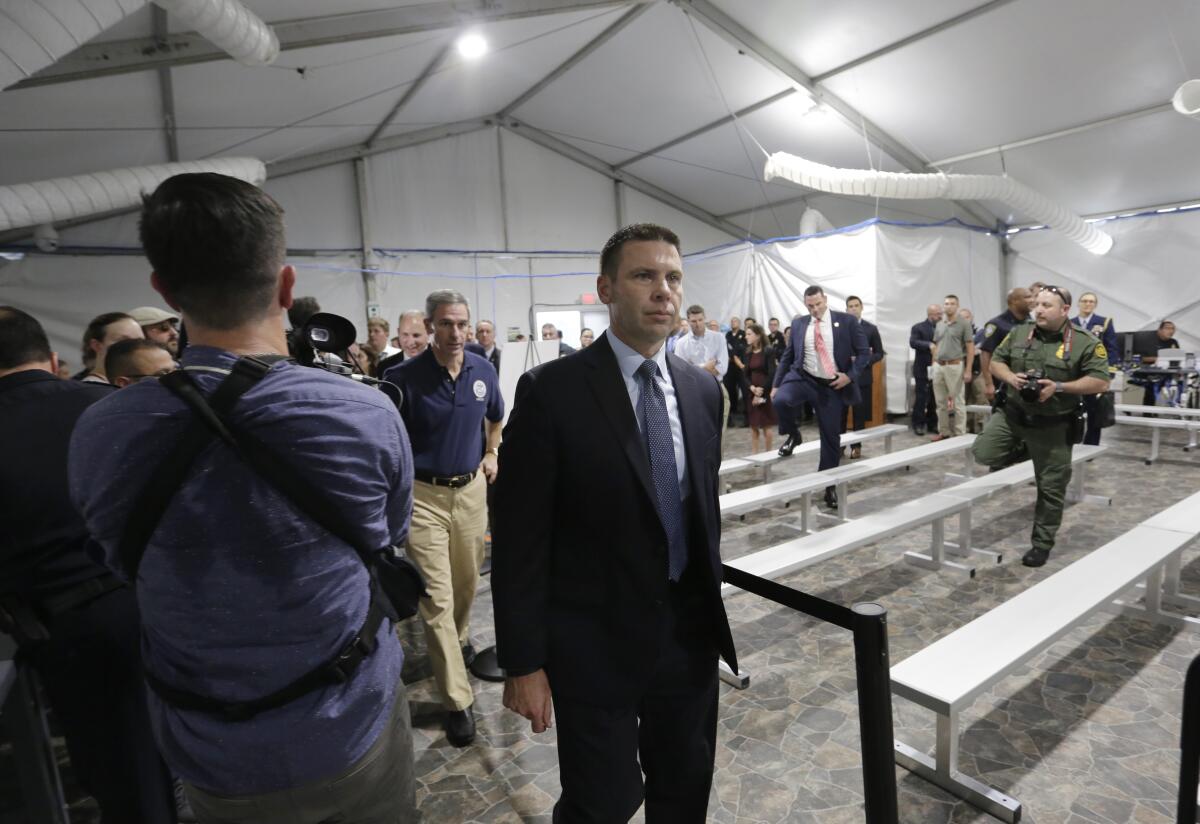Trump immigration officials defend tent courts, saying they’ll speed up asylum process

- Share via
LAREDO, Texas — The new immigration tent court in this border city feels more like a detention center: barbed wire chain-link fence, metal detectors, security cameras and uniformed guards.
Asylum cases can take years, but the tent courts that recently opened here and in Brownsville, Texas, were designed to reduce that to as little as 40 days, the average time it takes for migrants in detention, according to Acting Border Patrol Commissioner Mark Morgan, who toured the tent with other Homeland Security officials Tuesday.
Critics say Homeland Security and the Justice Department, which oversee immigration courts, have illegally expedited asylum cases by turning the tents in Laredo and Brownsville into secret courts, restricting public access.
Morgan said access was restricted because of security.
San Antonio Assistant Chief Immigration Judge Clay Martin said four judges would soon hear up to 400 cases a day at the Laredo tent court. He said it would be more efficient than transporting migrants 155 miles north to San Antonio.
“The cost would be outlandish,” he said.
Legal advocates have not been allowed to give migrants at tent courts “know your rights” presentations, as they do at other immigration courts. On Tuesday, of 106 migrants scheduled to appear at the Laredo tent court, 52 attended, four with attorneys. Most of the no-shows were ordered deported, ending their asylum cases.
“It’s like factory justice,” said Charanya Krishnaswami, Americas’ advocacy director for Amnesty International USA. “They’re just trying to get as many people through with the least friction as possible. They know people having counsel will cause friction in their system — people will express fear and potentially win their cases.”
More to Read
Sign up for Essential California
The most important California stories and recommendations in your inbox every morning.
You may occasionally receive promotional content from the Los Angeles Times.











